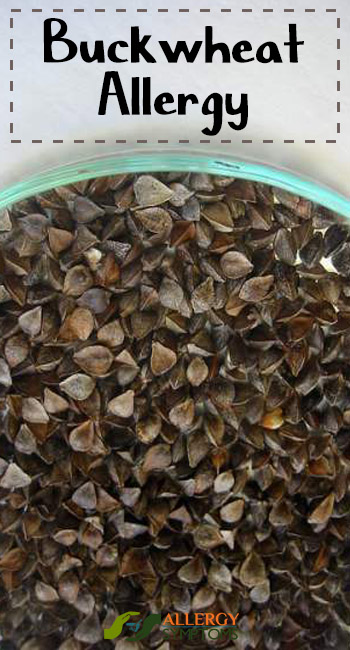Buckwheat is an important crop in some regions of the world and it’s not related to wheat family. It is a finely ground dark colored flour commonly found in food items like bread, waffles and pancakes and also as a substitute for people who are allergic to wheat.
Buckwheat belongs to polygonaceag group of seeds and it is an excellent source of fiber, vitamins and minerals. This contains 8 essential amino acids and the flavonoid found in one of the amino acids promotes cardiovascular health by its ability to dilate blood vessels and improve the circulation of oxygenated blood.
Do such a wonderful and valuable dietary food cause allergy reaction? The answer is yes. Let’s see the causes and symptoms of buck wheat allergy.
Causes of Buckwheat Allergy
Buckwheat is one of the main and most powerful allergens in Japan and Korea.Buckwheat allergy is an adverse reaction by the body’s immune system to buckwheat. The immune system produces immunoglobin E and histamine in response to contact with allergen. This type of allergy is very rare and severe reactions are even rare.
Symptoms of Buckwheat Allergy
Buckwheat contains highly potent allergens that trigger allergic reactions via ige mediated response. The primary allergens are identified by the immune system and recognize the amino acids which are dangerous and initialize the production of ige anti bodies.
By the response of pro inflammatory immune cells it releases histamines, thus the release of histamine in blood stream results in signs and symptoms of buckwheat allergy.
The symptoms of buckwheat allergy are as follows:
The first symptom of buckwheat allergy in adults is swollen lips. The symptoms may not happen immediately, an allergic reaction can occur after some time or repeated contact with the allergens.
- Sneezing
- Swelling of lips and tongue
- Runny nose
- Coughing
- Itching in mouth
- Headache
- Pain in sinuses of nose
- Pain in abdomen
- Nausea
- Vomiting
- Diarrhea
When liver damage is observed then it leads to jaundice and changes in biochemical parameters.

The buckwheat allergies in children cause symptoms like rashes on skin, red eyes, tearing and runny nose. A child may even suffer reactions on being feed on cereals.
Diagnosis of Allergy to Buckwheat
- Diagnosis of allergy to buckwheat is totally based on detailed clinical history and physical examination of patient.
- This includes skin test and diagnosis test for ige antibodies to various food allergens.
- Eliminate allergic diet and undergo provocative tests.
Treatment
If the symptoms of allergy are mild then its therapy with medications is not provided, thus anti histamines are prescribed by doctor.
Antihistamine drug called diazolin should be taken immediately after the meals; the dosage should be 0.5g for below 14 years for two times a day and 0.025 g for below 12 years children for 1-2 times a day.
The drugs need to continue until you see the removal of an acute allergy. Do remember that all antihistamines have side effects in the form of drowsiness, dizziness, dryness and irritation of the mucous.
Buckwheat is not a respiratory allergy, it forms like urticaria and atopic dermatitis, other than antihistamines doctor will not provide you any medications.
One and only solution to avoid this allergy is to prevent or reduce the content of buckwheat in food items and avoid the products of buckwheat.
Note: Always consult the doctor before taking antihistamine drugs.

